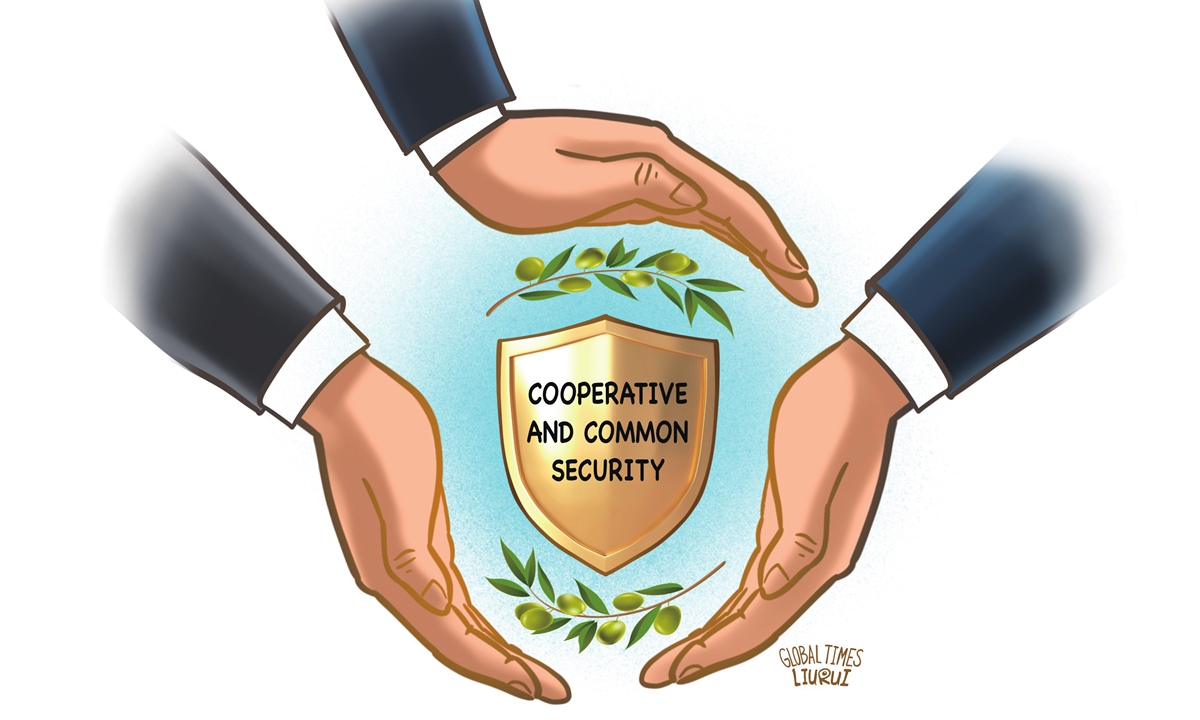
Illustration: Liu Rui/GT
On Wednesday, the sixth trilateral foreign ministers' dialogue among China, Afghanistan and Pakistan was held in Kabul, Afghanistan. At the meeting, Chinese Foreign Minister Wang Yi called for deepening trust and exchanges among the three countries, urging them to pursue a path of cooperative and common security. Against the backdrop of a fragile regional security environment and shifting global dynamics, this appeal raises a timely question: how can the three nations work together to stabilize the region and create conditions for long-term development?
Historically, the relationship between Pakistan and Afghanistan has been complex. Although the two countries are important trading partners and share close cultural, ethnic and religious ties, in recent years, conflicts over border disputes, refugees and terrorism have become increasingly prominent.
Beijing, however, has managed to maintain stable relations with both, making it one of the few major powers capable of serving as a bridge between them. Indeed, it was shortly after a trilateral foreign ministers' dialogue in May that Afghanistan and Pakistan restored diplomatic ties - an outcome made possible through Beijing's mediation.
The fact that the trilateral dialogue continues underscores an important point: all three parties still recognize peace and development. In a region where security risks often derail cooperation in other areas, the very act of sitting down together reflects not only political will but also the recognition that no country can do it alone.
In particular, Wang Yi's call for cooperative and common security encapsulates both a realistic priority and a broader strategic vision.
Strategically, the concept of cooperative and common security goes beyond counterterrorism. Lin Minwang, a deputy director of the Center for South Asian Studies at Fudan University, told the Global Times that it implies that each of the three countries must respect the others' security interests. More crucially, no country should enter into exclusive security arrangements with outside powers that would inevitably trigger anxiety in the other two. In other words, it is an appeal to avoid importing geopolitical rivalries into an already fragile regional balance.
The timing of the meeting is also telling. It came just weeks before the upcoming Shanghai Cooperation Organisation (SCO) summit in Tianjin, China, where the issues involving Afghanistan have long figured as a focal point. The trilateral dialogue, therefore, could be interpreted as a preparatory step for further discussions at the SCO summit.
Looking forward, it is expected that the China-Afghanistan-Pakistan trilateral mechanism will endure, not just as a security dialogue but as a broader framework. Potential areas of cooperation include humanitarian relief, poverty reduction, healthcare and infrastructure connectivity, with cultural exchanges providing another layer of engagement.
This format could also dovetail further with other multilateral platforms, such as the Meeting of Foreign Ministers of Afghanistan's Neighbouring Countries or the SCO, Zhu Yongbiao, executive director of the Research Center for the Belt and Road at Lanzhou University, told the Global Times. It can perhaps even interact with the China-Central Asia Summit, given Central Asian states' keen interest in Afghan stability, he added.
In short, the China-Afghanistan-Pakistan trilateral foreign ministers' dialogue serves not only as a stable platform for trilateral cooperation but also a manifestation of China and Pakistan's unique roles in addressing the Afghanistan issue. For Kabul, long scarred by external intervention and internal fragmentation, neither unilateral policies nor foreign military presence offer a sustainable way forward. Only a regional, cooperative approach can provide a viable path toward stability.
The message of the trilateral dialogue is simple but profound. Despite complexity, cooperation remains the most realistic - and the most rational - choice.
